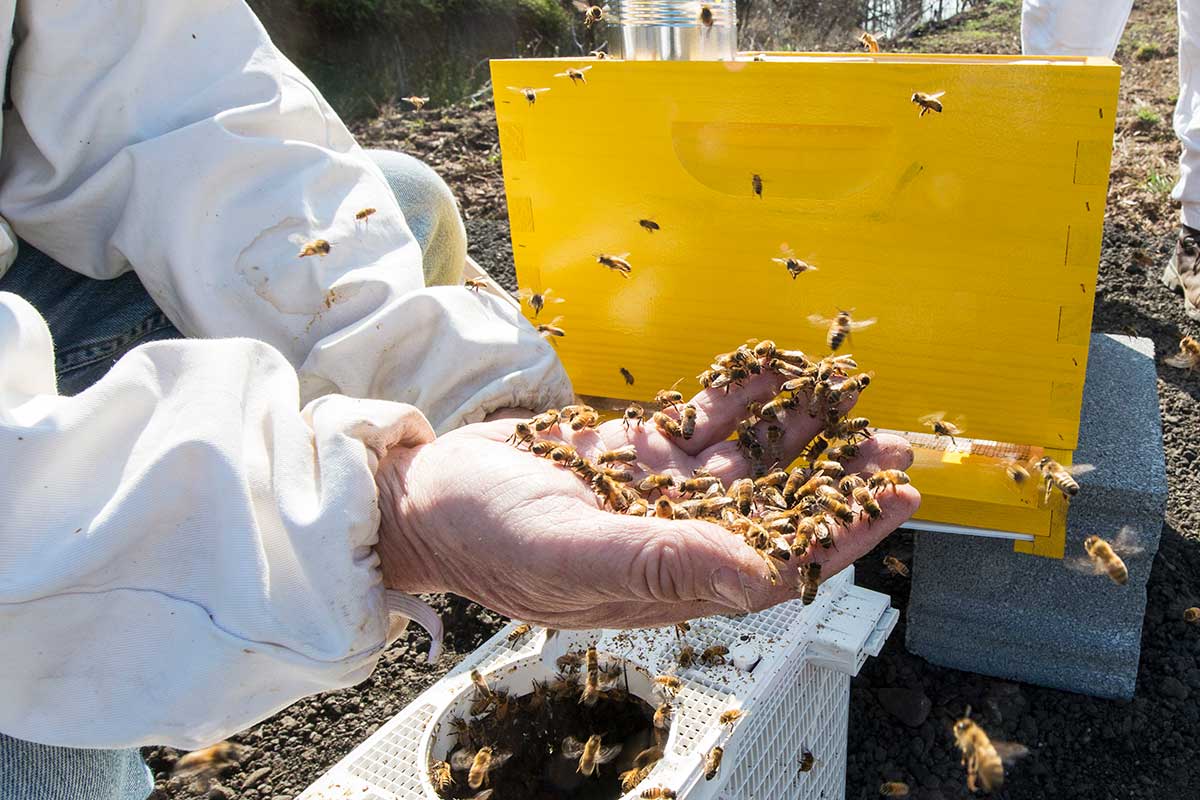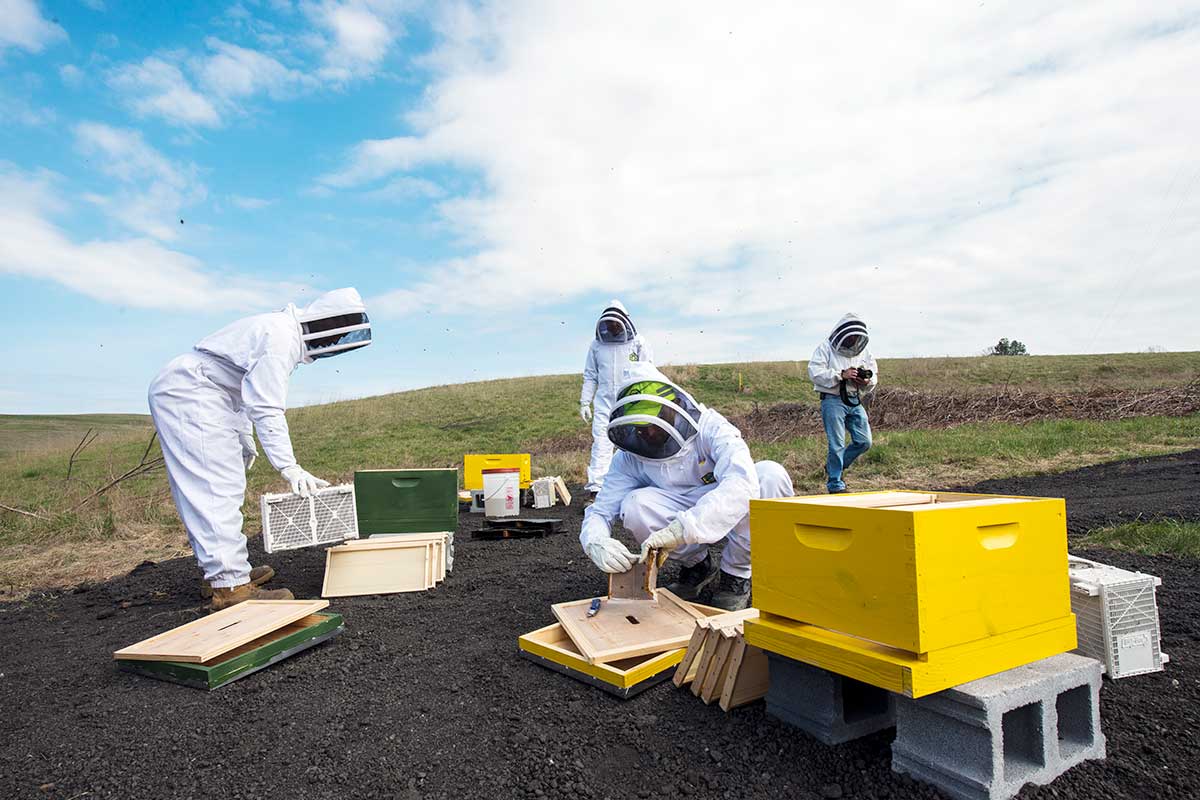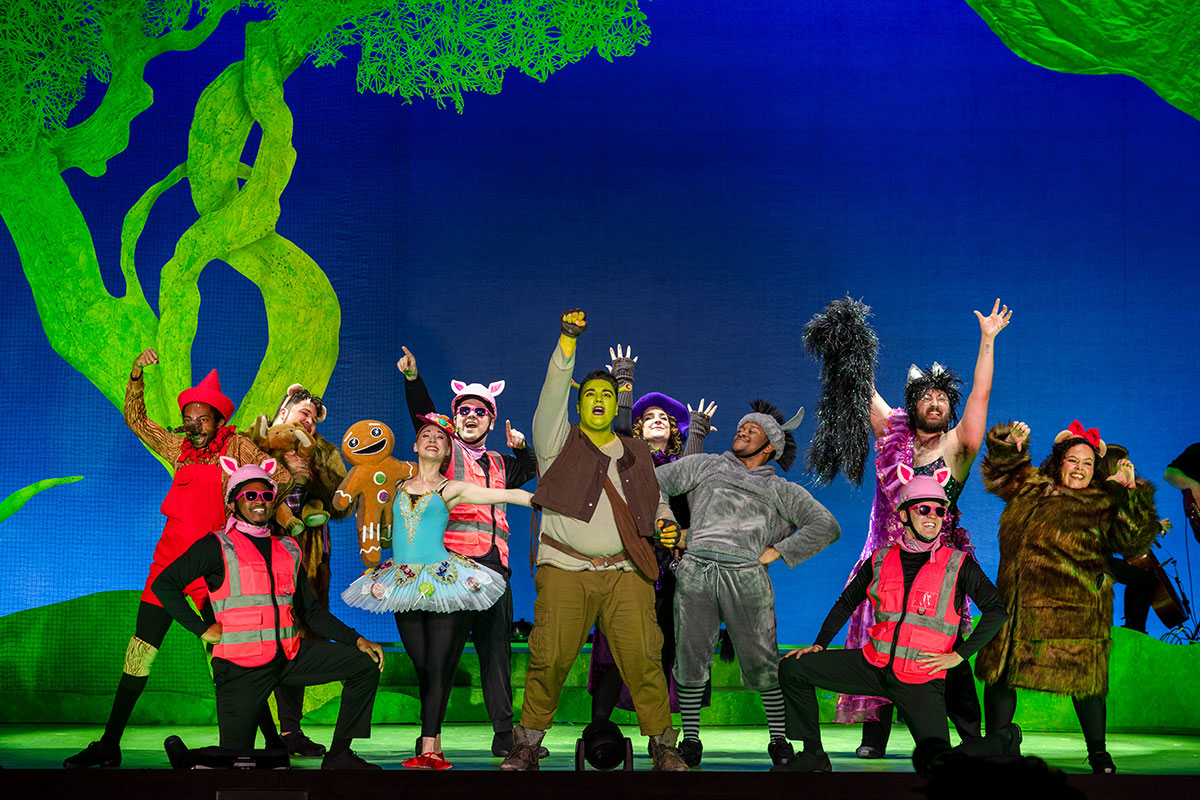
When you think of trash, bees probably don’t come to mind—unless you’re at a Lorton landfill.
George Mason University’s Honey Bee Initiative is partnering with Fairfax County to convert mowed land at the I-95 Landfill Complex in Lorton into meadows that are ideal for honeybee pollination. In October 2016, landfill staff seeded the first 2 acres with a county-prepared meadow mix, followed by 2 more seeded acres in April. And in the next five years, landfill complex manager Eric Forbes plans to convert about 25 acres.
“As the science has progressed over the years, meadows are now an important part of our landscape that we lost due to development. So the idea is to re-establish those,” Forbes says.
Forbes approached German Perilla, director of the Honey Bee Initiative, in 2016 with his idea to repurpose the landfill as a sort of bee playground, with the dual effect of lowering lawn maintenance costs and promoting pollination. The initiative, a collaboration between Mason’s School of Business and College of Science, got started in 2012 with seed money and bees from the Sweet Virginia Foundation.
That same year, the Obama White House stressed the need to preserve dwindling honeybee populations, stating in a fact sheet that pollinators such as honeybees were responsible for about a third of the world’s food production. The administration ultimately created a task force in 2014 to address the matter.
“In 2012, due to the crisis that the bees were having—all pollinators were having—we got the idea to actually begin the beekeeping program to teach students to research,” Perilla says. He attributes the population drop—a two-thirds decline in Virginia since 1970—to an amalgam of causes, including colony collapse disorder, the Varroa mite and agrochemicals. The Mason project not only aims to increase local bee populations but also is active in Latin America, with economic development and conservation projects in Peru, El Salvador and Colombia.
There are 12 colonies of honeybees at the landfill traveling in a 2-mile radius around the Lorton site as they forage, Perilla says. Both Fairfax County and Covanta, the private company that transfers waste into ash at the landfill, are funding the project.
“This is the first time we are trying to convert a landfill into a productive ecosystem,” Perilla says. “The hope is to at least double the population, have productive apiaries and have a little more acceptance of the people regarding the perception that they have of a landfill.”

Making Local Lives a Bit Sweeter
When Dan Price started beekeeping at his Greenwich farm, he didn’t expect to do much more than take care of some bees and fill a few jars of honey. But nearly 10 years later, his hobby has blossomed into a 501(c)(3) nonprofit that has connected with more than 10,000 students, delivered more than 100,000 flowers to the community and helped George Mason’s Honey Bee Initiative take flight.
After a few years of accepting donations for various charities in exchange for jars of honey, the Sweet Virginia Foundation broadened its reach to the audience that Price says makes the best ambassador for bees: children. They first hired an instructor to teach in classrooms throughout the local community and eventually added an online curriculum, Hive Alive!, last year.
Price says that early education through their hosted farm visits and lessons benefits both the bees and the children, helping them learn “how there’s kind of this system of order that’s working in nature that needs to be kept in harmony and in balance,” Price says. “And the honeybee, it just plays its little role in that symphony.”
Sweet Virginia has an additional beneficiary for their fields full of sunflowers and dahlias in local seniors. Price, who owns a nearby branch of BrightStar home care, finds that older adults are very appreciative of the gifts.
“It’s nice for all involved. It’s nice for us; it’s nice for the volunteers that deliver them; it’s nice for the seniors,” Price says. “The bees get what they need out of them, but before [the flowers are] done, when they’re still very pretty, they get to be enjoyed.”





